Scroll down below to explore the latest posts from our daily collecting guide, Peter's quotes, notes and reflections from forty years of collecting and dealing in photography. Started during lockdown and continued by popular demand for over three years now, daily posts are sent by email to our mailing list subscribers, with live works for sale and related works to explore, as well as advance previews of exhibitions and events.
Access the previous 800 posts in our archive pages starting in March 2020 here
Use the #tags below right to search by category and subject. If there is a particular subject, era, style or artist of interest, please contact our concierge service for a tailor-made private view.
-

#1463 - Don McCullin
Early Morning, West Hartlepool Steel Foundry, UK, 1963“Photography for me is not looking, it’s feeling. If you can’t feel what you’re looking at, then you’re never going to get others to feel anything when they look at your pictures”
~ Don McCullin
-

#1458 - Robert Doisneau
Cour Carrée du Louvre, 1969“So you arrive in a place that seems good, where things are composed harmoniously in the space. Then you wait. Waiting with irrational crazy hope. Then people come into the frame and “click” you take the picture"
~ Robert Doisneau
(1912-1994)ENQUIRE ABOUT THIS WORK
-

#1456 - Robert Doisneau
Le Baiser Blotto, 1950/Printed Later“Life is short. Break the rules. Forgive quickly. Kiss Slowly. Love truly. Laugh uncontrollably and never regret anything that made you smile”
~ Robert Doisneau
(1912-1994)ENQUIRE ABOUT THIS WORK
-

#1452 - Louis Stettner
Coming to America, 1951/Printed Late“My Credo, my way of life, my very being is based on images capable of engraving themselves indelibly in our inner soul’s eye. Also, through my personal vision, to reveal what cannot be readily seen, to capture what is most meaningful, to enrich our appreciation of life. It is to explore and celebrate the human condition and the world around us, nature and man together, to find significance in suffering and all that is profound, beautiful and nourishes the soul. Above all, I believe in creative work through struggle to increase human wisdom and happiness”
~ Louis Stettner
(1922-2016)ENQUIRE ABOUT THIS WORK
-

#1429 - Willy Ronis
Bouliste à Aubagne, 1947"We were spending our summer vacation near Aubagne where I photographed this older man playing boules. It is an ordinary scene, but I found the man very colorful in his postures.”
~ Willy Ronis
(1910 -2009)When you are old and grey and full of sleep,
And nodding by the fire, take down this book,
And slowly read, and dream of the soft look
Your eyes had once, and of their shadows deep;
How many loved your moments of glad grace,
And loved your beauty with love false or true,
But one man loved the pilgrim soul in you,
And loved the sorrows of your changing face;
And bending down beside the glowing bars,
Murmur, a little sadly, how Love fled
And paced upon the mountains overhead
And hid his face amid a crowd of stars.~ William Butler Yeats
(1865 - 1939)ENQUIRE ABOUT THIS WORK
-

#1423 - Wolfgang Suschitzky
Charing Cross Road [puddle jumper], 1937“A combination of the right choice of detail, the elimination of all that is inessential and the right moment that makes the picture"
~ Wolfgang Suschitzky
(1912-2016)ENQUIRE ABOUT THIS WORK
-

#1418 - Manuel Álvarez Bravo
Para el sol, Mexico, 1973“I just get the will to do it. I don’t plan a photograph in advance…. I work by impulse. No philosophy. No ideas. Not by the head but by the eyes. Eventually inspiration comes. Instinct is the same as inspiration and eventually it comes”
~ Manuel Álvarez Bravo
(1902-2002)ENQUIRE ABOUT THIS WORK
-

#1411 - Henri Cartier-Bresson
Siphnos, Greece, 1961“The joy of geometry ! When you realize everything is right"
~ Henri Cartier Bresson
ENQUIRE ABOUT THIS WORK
-

#1375 - Dorothy Bohm
Jardin des Tuileries, Paris, 1953“A photograph fulfills my deep need to stop things from disappearing”
~ Dorothy Bohm
1924 - 2023ENQUIRE ABOUT THIS WORK
-

#1369 - Louis Stettner
Jardin des Tuileries, 1997/Printed Later“New York is a city I loved, a city that forgives nothing but accepts everyone - a place of a thousand moods and vistas, of countless faces in a moving crowd, each one silently talking to you”
~ Louis Stettner
(1922-2016)ENQUIRE ABOUT THIS WORK
-

#1360 - Wolfgang Suschitzky
Charing Cross Road from No. 84, (Marks & Co.), 1936“There was no such thing as a photography galleries in the 1930’s. Photography was not considered collectable works of art in those days”
~ Wolfgang Suschitzky
(1912-2016)“It is difficult to speak adequately or justly of London. It is not a pleasant place, it is not agreeable or cheerful or easy or exempt from reproach. It is only magnificent"
~ Oscar Wilde
ENQUIRE ABOUT THIS WORK
-

#1356 - Henri Cartier-Bresson
Aquila Degli Abruzzi, Italy, 1951“Of course I am curious and when I arrive in a place I like to see and understand what happens around me. However, I need to travel slowly and I avoid plane trips. A photographer must not run but walk, tirelessly. Then he can seize what is on offer on the pavement, at the street corner, in life."
~ Henri Cartier-Bresson
(1908 - 2004)ENQUIRE ABOUT THIS WORK
-

#1354 - Josef Koudelka
Spain, 1971“I’m this little guy who walked around on this earth trying to find the place where pictures are waiting for him”
~ Josef Koudelka
ENQUIRE ABOUT THIS WORK
-

#1353 - Louis Stettner
Elbowing Out of Town, News Stand, New York, 1954/Printed Later“New York is a city I loved, a city that forgives nothing but accepts everyone - a place of a thousand moods and vistas, of countless faces in a moving crowd, each one silently talking to you”
~ Louis Stettner
(1922-2016)ENQUIRE ABOUT THIS WORK
-

#1337 - William Klein
Staten Island Ferry, New York, 1955“The kinetic quality of New York, the kids, the dirt, the madness - I tried to find a photographic style that would come close to it. So I cropped, blurred, played with the negatives”
~ William Klein -
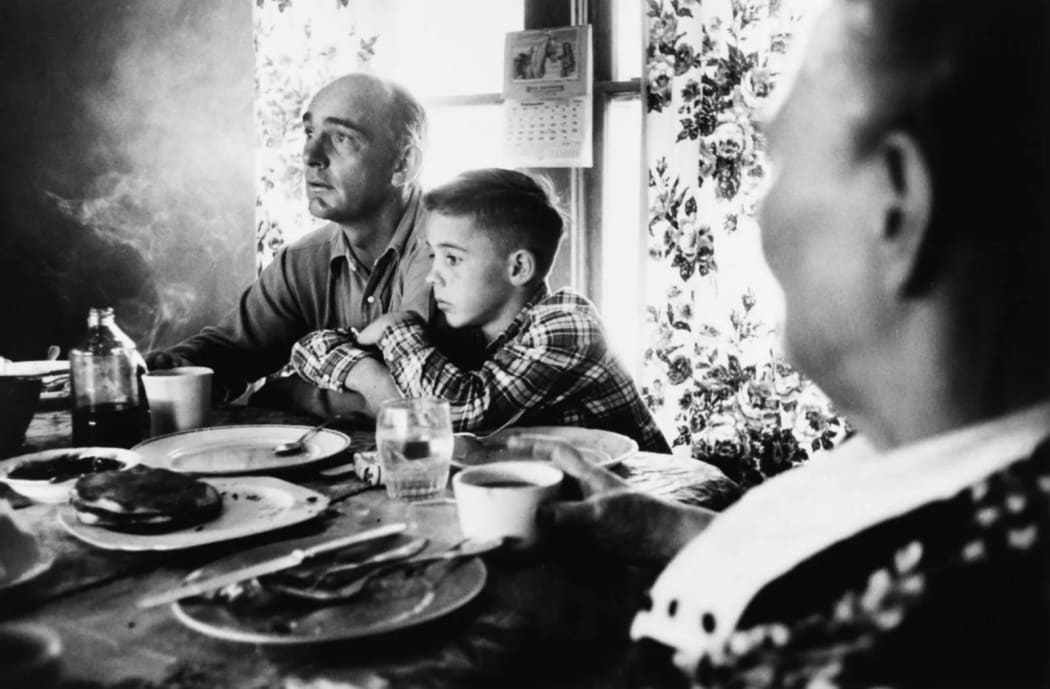
#The Power of Photography - Fathers Day
Ranch Boy with Father, 1954“It is a wise father that knows his own child.”
~ William Shakespeare -

#1328 - Henri Cartier-Bresson
Behind the Gare St. Lazare, Paris, 1932“Photography is not documentation but intuition, a poetic experience. It’s drowning yourself, dissolving yourself, then sniff, sniff, sniff- being sensitive to coincidence. You can’t go looking for it: you can’t want it or you won’t get it. First you must lose yourself. Then it happens.
~ Henri Cartier-Bresson -
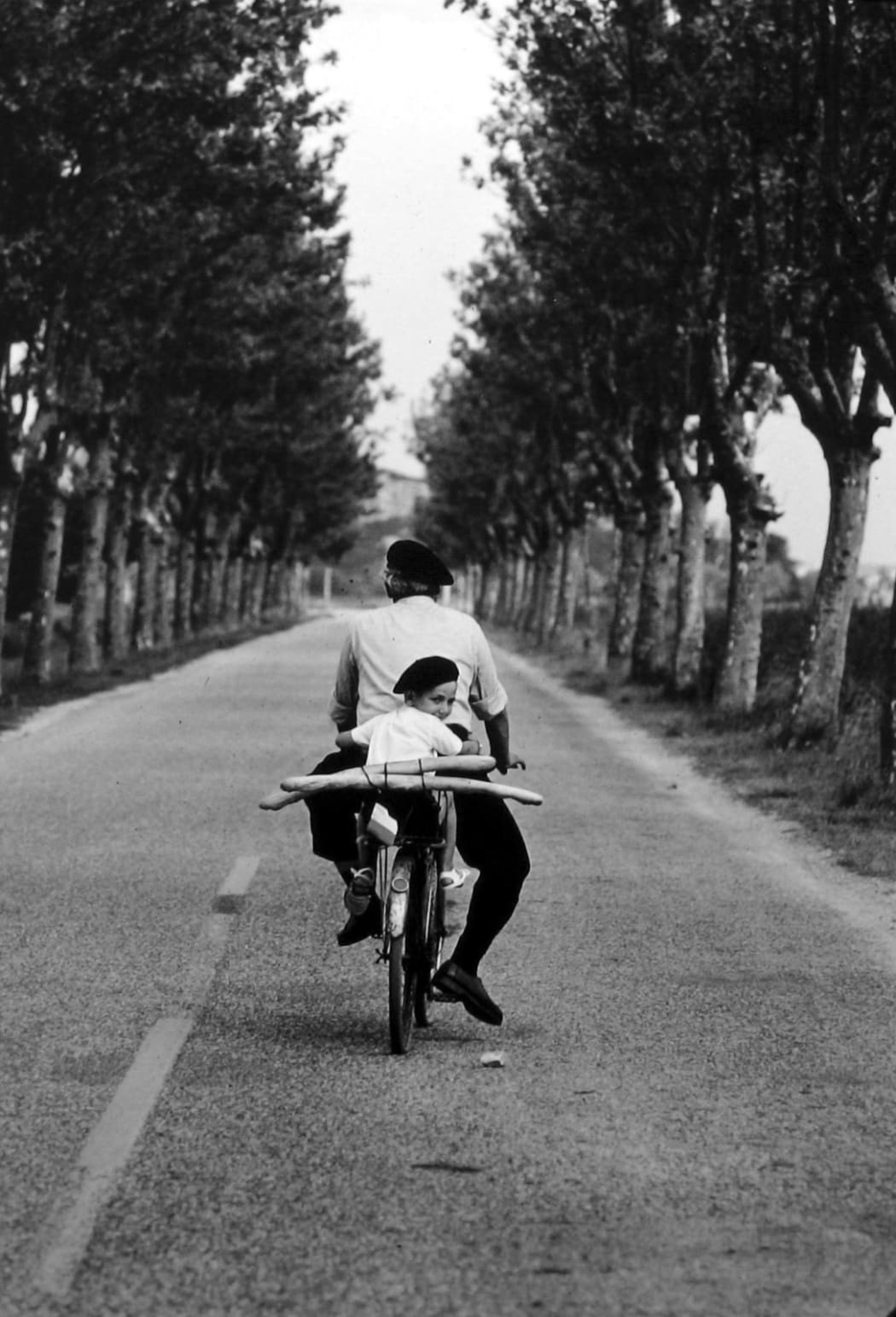
#1327 - Gifts for Dad - Elliott Erwitt
Provence, France (Boy on Bicycle), 1955“As fathers, we need to be involved in our children’s lives not just when it’s convenient or easy, and not just when they’re doing well — but when it's difficult and thankless, and they’re struggling. That is when they need us most.”
~Barack Obama -

#1324 - Larry Towell
Lambton County, Ontario, Canada , 1990"If there's one theme that connects all my work, I think it's that of landlessness; how land makes people into who they are and what happens to them when they lose it and thus lose their identities"
~ Larry Towell
ENQUIRE ABOUT THIS WORK
-

#1321 - Gifts for Dad - William Heick
Hats, Father's Day Picnic, 1948“She did not stand alone, but what stood behind her, the most potent moral force in her life, was the love of her father.”
~ Harper Lee -

#1318 - Louis Stettner
Aubervilliers, 1949/Printed Later“Looking back upon those early years in Paris I realize that not only was the city a great inspiration but also that the Parisians gave me the reassurance that I was doing something important. There was an innate respect for artists - for what we were doing and for having the courage to take the hard road. Yet it was a joyous route, such magnificent sights and human splendor along the way that difficulties magically effaced themselves. One regretted nothing and would have it no other way”
~ Louis Stettner
(1922-2016)ENQUIRE ABOUT THIS WORK
-

#1314 - Flor Garduño
Taita Marcos, Cotacachi, Ecuador, 1988“My artistic quest is also a search for the characters in my dreams"
~ Flor Garduño
ENQUIRE ABOUT THIS WORK
-

#1308 - Manuel Álvarez Bravo
La Hija de los Danzantes [The Daughter of the Dancers], 1933“When one takes a photograph, one doesn’t think about saying anything in particular. One doesn’t think about making a statement but rather of creating something visual which can later bear a meaning that one didn’t intend to transmit-depending on the viewer’s interpretation but not necessarily on the photographer’s”
~ Manuel Álvarez Bravo
(1902-2002) -

#1300 - Marc Riboud
Varanasi, India, 1956“There are different ways of seeing. I have mine. For me to photograph a beautiful face, a misty landscape is somehow like listening to music or reading poetry. It helps me to live”
~ Marc Riboud
(1923-2016)ENQUIRE ABOUT THIS WORK
-

#1295 - Louis Stettner
Coming to America, 1951/Printed Later“A good photograph becomes something more than just a good photograph. It has meaning and value that extends beyond the medium itself. Something spiritual that reveals something about life”
~ Louis Stettner
(1922-2016)ENQUIRE ABOUT THIS WORK
-
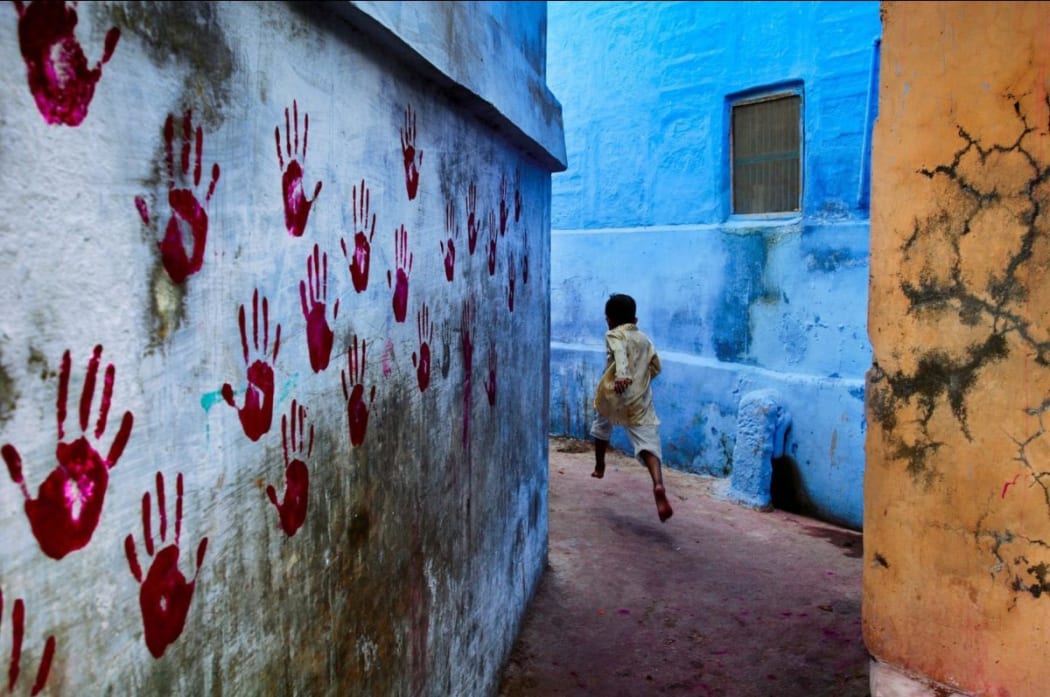
#1286 - Steve McCurry and Jeffrey Conley
Exhibitions extended to Saturday, May 4th, 2024Due to popular demand Jeffrey Conley's exhibition, An Ode to Nature and Steve McCurry's The Endless Traveler have been extended until Saturday May 4th, 2024. Don't miss this opportunity to experience two amazing shows at our Santa Monica gallery. We look forward to your visit.
-

#1277 - Elliott Erwitt
North Carolina, 1950“I have a strong attraction to the American South. People there have a marvelous exterior - wonderful manners, warm friendliness until you touch on things you’re not supposed to touch on. Then you see the hardness beneath the mask of nice manners”
~ Elliott Erwitt
(1928 - 2023)ENQUIRE ABOUT THIS WORK
-
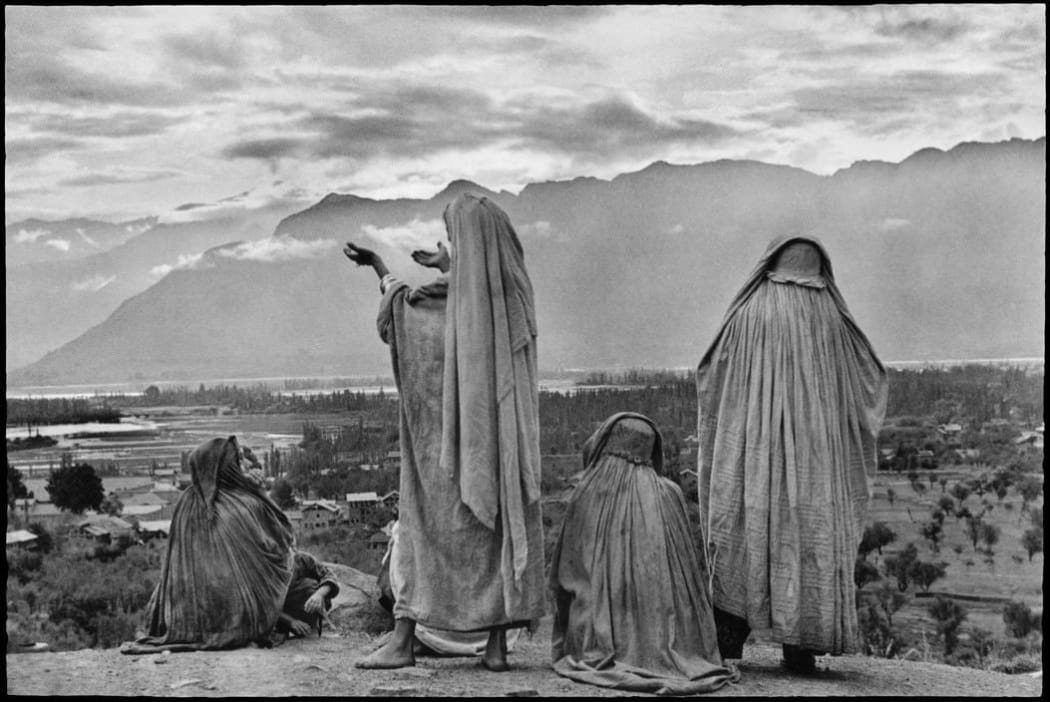
#1272 - Henri Cartier-Bresson
Srinagar, Kashmir, 1948“At the moment of shooting (composition) can stem only from our intuition, for we are out to capture the fugitive moment, and all the interrelationships involved are on the move……. It very rarely happens that a photograph which was feebly composed can be saved by reconstruction of its composition under the darkroom’s enlarger. The integrity of the vision is no longer there”
~ Henri Cartier-Bresson
(1908 - 2004) -
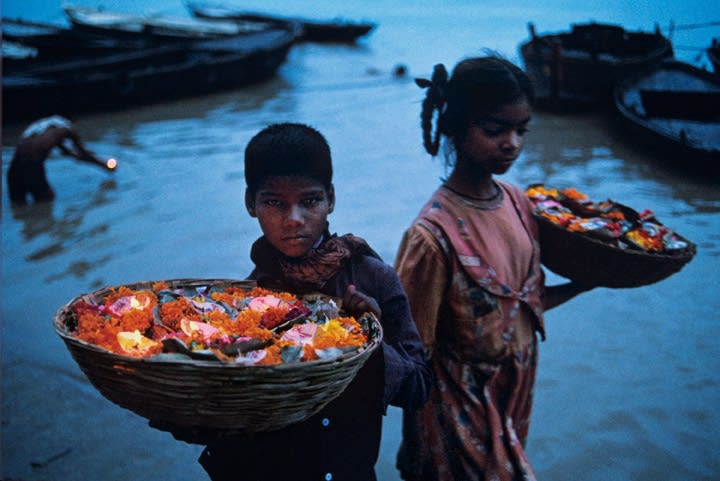
#1270 - Steve McCurry
Floating Offerings, Varanasi, India, 1996"There’s a contemplative or meditative quality to photography, which I find to be a sort of peaceful state. When I’m walking around photographing, I get into a particular mindset where I become much more attuned to the world around me."
~ Steve McCurry
-
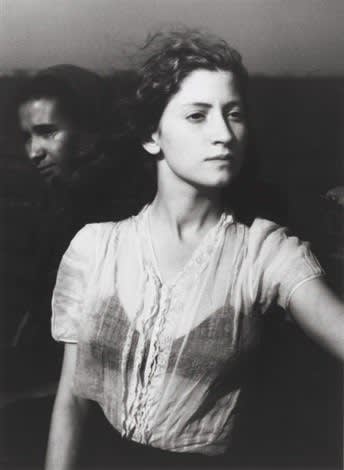
#1265 - Edouard Boubat
Lella, Bretagne, 1947"I have often been asked what I think of that photo. What I think, to quote Proust, is that it is charged with something of the “transparent substance of our best moments,” those that we shared while we were young. Boubat and I, before the course of life made us drift apart, caught upon the spell that we were living under back then and what can only be called a poetic adventure.”
~ Lella, 1987
(Great muse of artist Edouard Boubat)'Never give all the heart for love'
Never give all the heart for love
Will hardly seem worth thinking of
To passionate women if it seem
Certain, and they never dream
That it fades out from kiss to kiss:
For everything that’s lovely is
But a brief, dreamy, kind delight.
O never give the heart outright.
For they, for all smooth lips can say
Have given their heart up to the play.
And who could play it well enough
If deaf and dumb and blind with love?
He that made this knows all the cost
For he gave all his heart and lost
~ W B Yates
(1865-1839) -
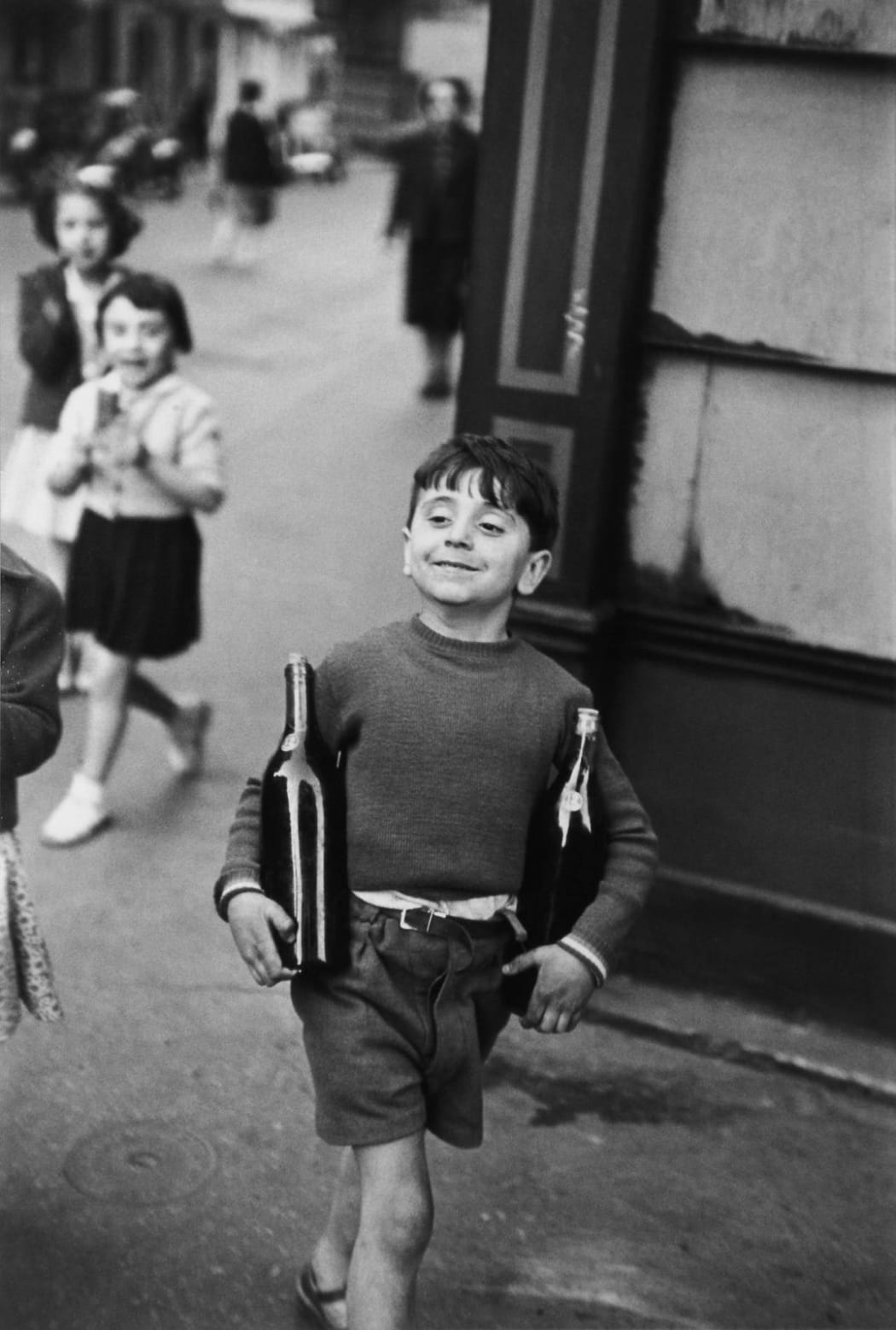
#1264 - Henri Cartier-Bresson
Rue Mouffetard, 1954“It is through living that we discover ourselves, at the same time as we discover the world around us”
~ Henri Cartier-Bresson
(1908 - 2004) -
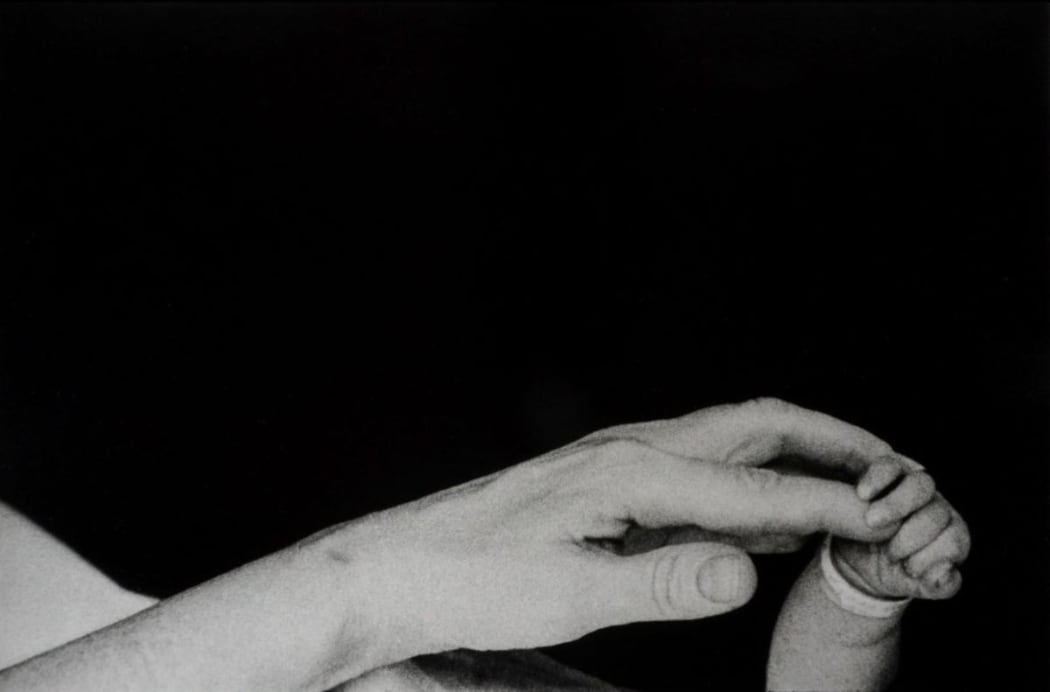
#1261 - Eve Arnold
Baby's Arm, 1959“I have been poor and I wanted to document poverty. I had lost a child and I was obsessed with birth. I was interested in politics and I wanted to know how it affected our lives. I am a woman and I wanted to know about women”
~ Eve Arnold
(1912-2012) -
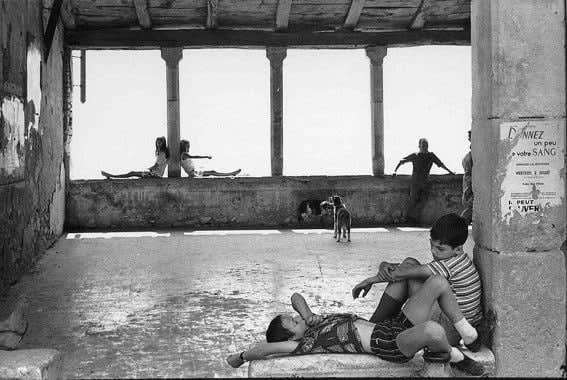
#1252 - Henri Cartier-Bresson
Simiane-la-Rotonde, 1970“For me the camera is a sketch book, an instrument of intuition and spontaneity, the master of the instant which in visual terms, questions and decides simultaneously. In order to give a meaning to the world, one has to feel involved in what one frames through the viewfinder. This attitude requires concentration, discipline of mind, sensitivity and a sense of geometry. It is by economy of means that one arrives at simplicity of expression"
~ Henri Cartier-Bresson
(1908 - 2004) -
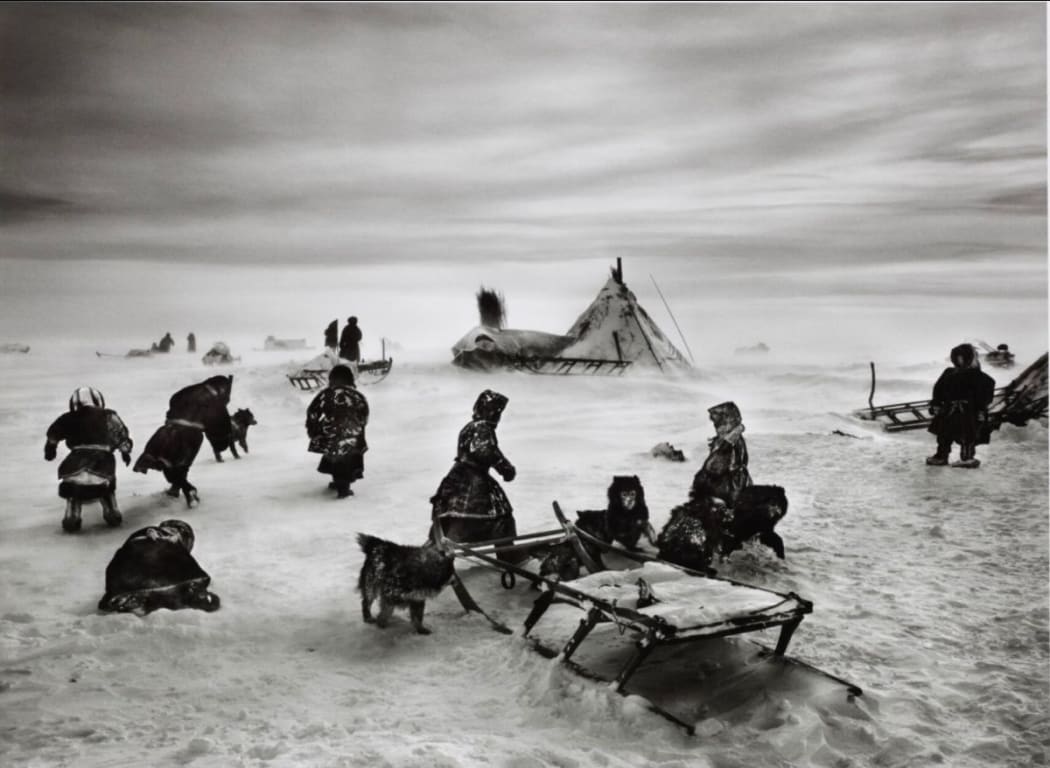
#1245 - Sebastião Salgado
Nenets nomads camp, Siberia, Russia, 2011“It is important that you respect what you are photographing."
~ Sebastião Salgado
-
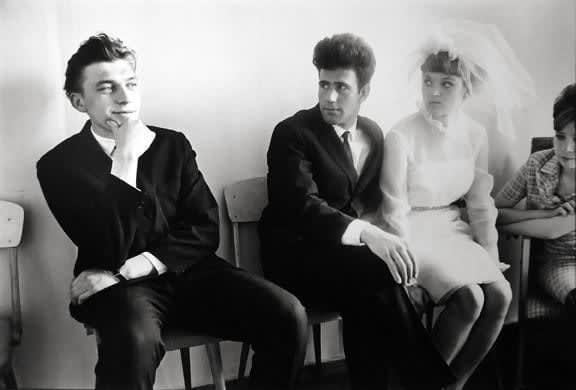
#1244 - Elliott Erwitt
Bratsk, Siberia, 1967“In general I don’t think too much. I certainly don’t use those funny words museum people and art critics like”
~ Elliott Erwitt
(1928 - 2023) -
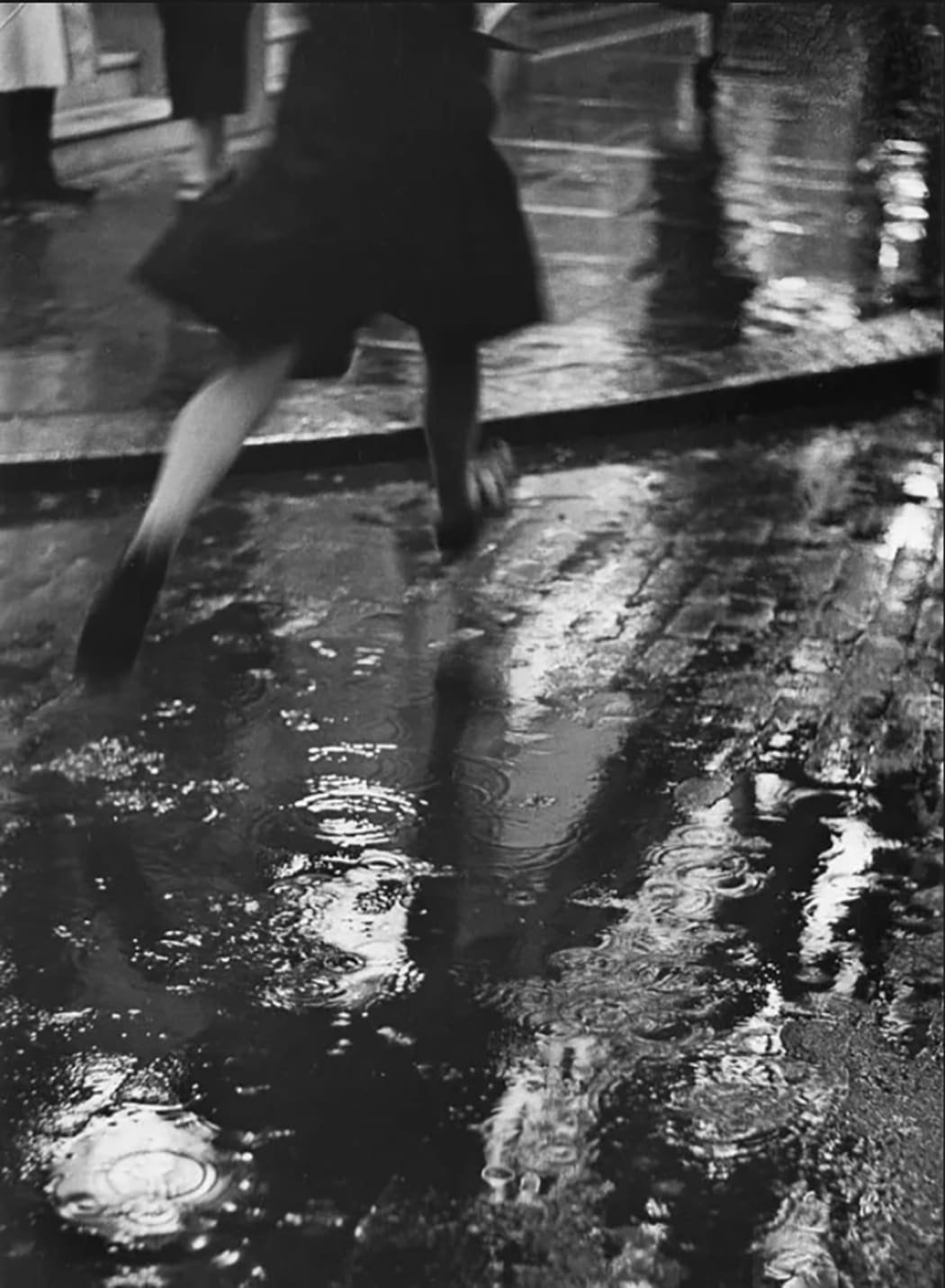
#1243 - Wolfgang Suschitzky
Charing Cross Road [puddle jumper], 1937“I have done a great deal of work to make all these photos and all these prints. I feel I have nothing to be ashamed of”
~ Wolfgang Suschitzky
(1912-2016) -
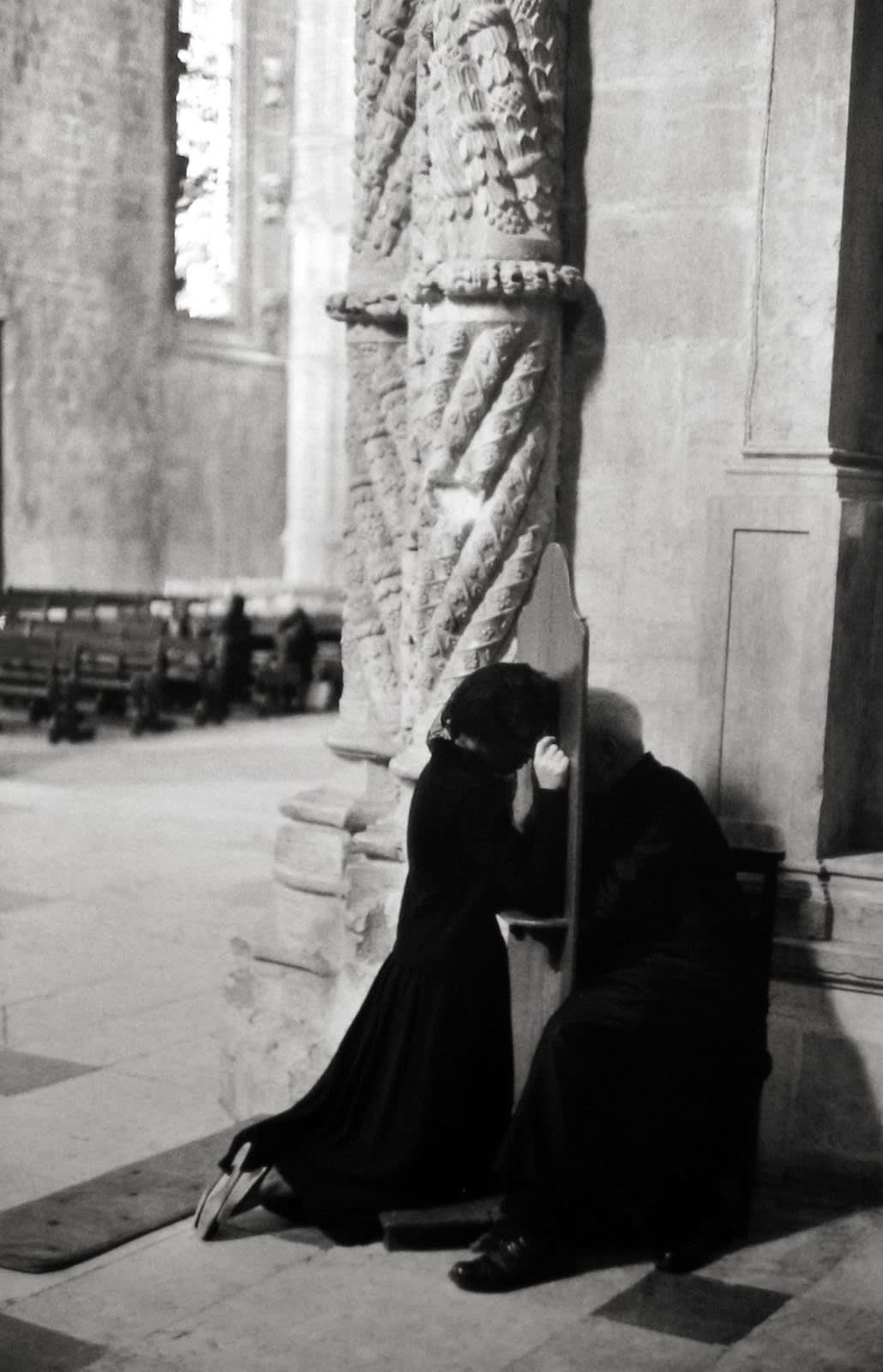
#1239 - Henri Cartier-Bresson
Lisbon, Portugal, 1955“Think about the photo before and after, never during. The secret is to take your time. You mustn’t go too fast. The subject must forget about you.Then however, you must be very quick”
~ Henri Cartier-Bresson
(1908-2004) -
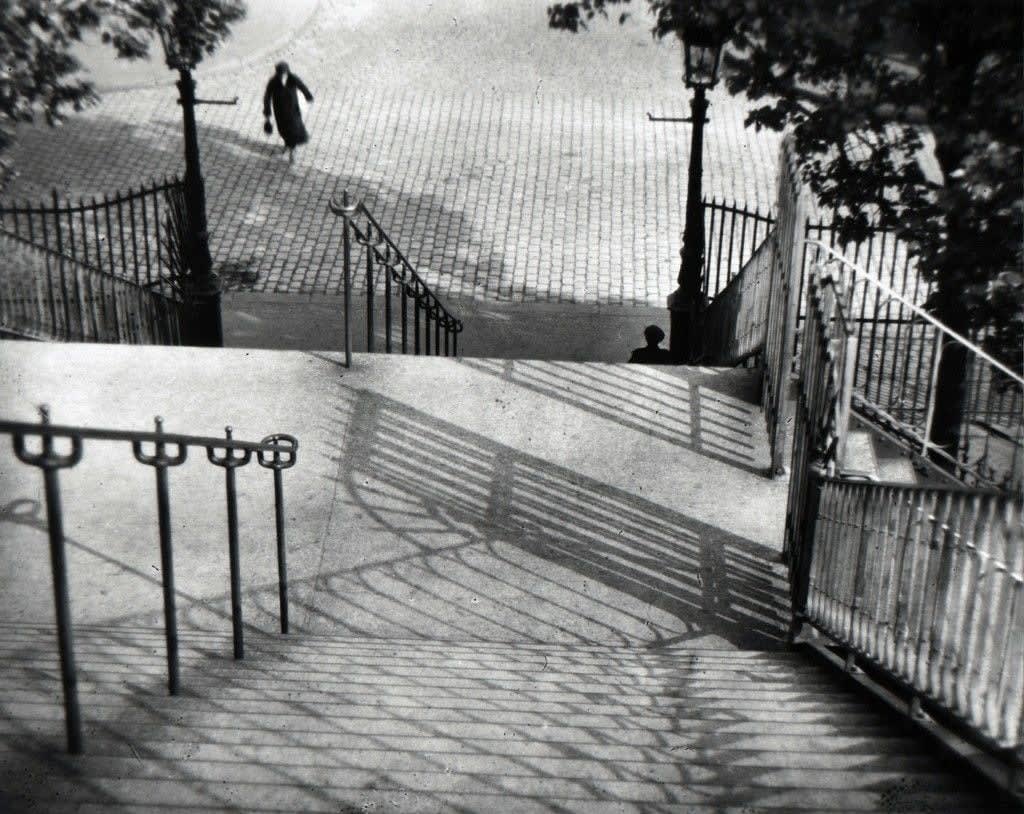
#1238 - Andre Kertész
Stairs at Montmartre, Paris, 1926"I do what I feel, that's all. I am an ordinary photographer working for his own pleasure. That's all I've ever done."
~ Andre Kertész
(1894-1985)Perhaps more than any other photographer, Andre Kertész
discovered and demonstrated the special aesthetic of the small camera. These beautiful little machines seemed at first hardly serious enough for the typical professional, with his straightforward and factual approach to the subject. Most of those who did use small cameras tried to make them do what the big camera did better: deliberate, analytical description.
Kertész had never been much interested in deliberate analytical description; since he had begun photographing in 1912 he had sought the revelation of the elliptical view, the unexpected detail, the ephemeral moment - not the epic but the lyric truth. When the first 35 mm camera - the Leica - was marketed in 1925, to seemed to Kertész that it had been designed for his own eye.
Like his fellow Hungarian Moholy-Nagy, he loved the play between pattern and deep space; the picture plane of his photographs is like a visual trampoline, taut and resilient. In the picture opposite half of the lines converge toward a vanishing point in deep space; the other half knit the image together in a pattern as shallow as a spider web, in which the pedestrian dangles like a fly.
In addition to this splendid and original quality of formal invention, there is in the work of Kertész another quality less easily analyzed, but surely no less important. It is a sense of the sweetness of life, a free and childlike pleasure in the beauty of the world and the preciousness of sight."
~ John Szarkowski
(Looking At Photographs, 100 Pictures from the Collection of The Museum of Modern Art by John Szarkowski) -
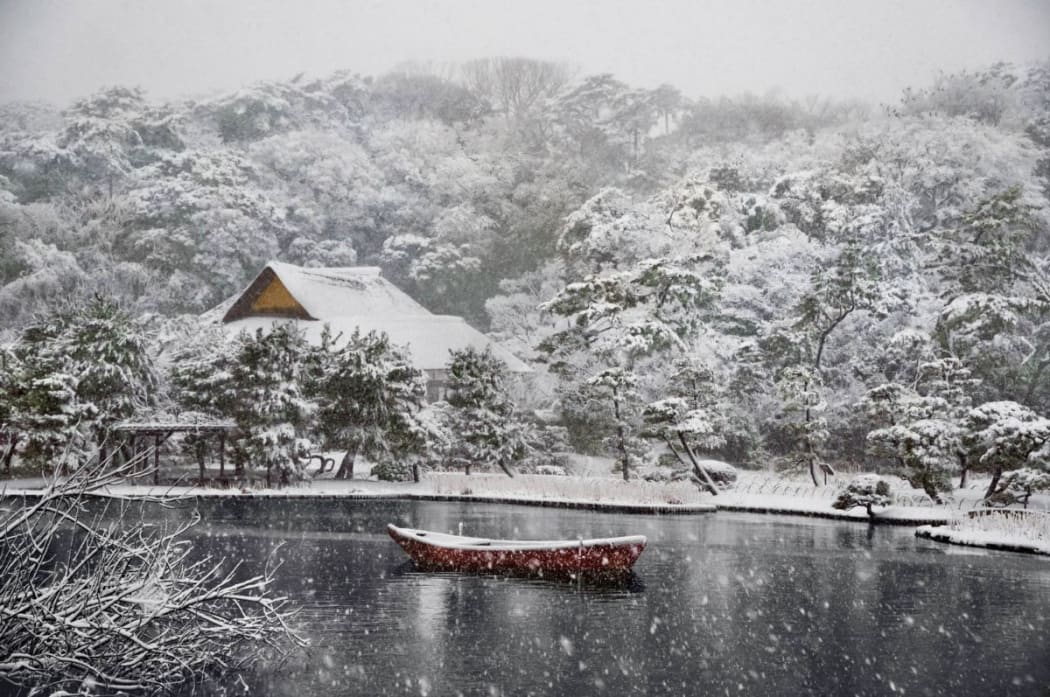
#1236 - Steve McCurry "Devotion"
Boat Covered in Snow in Sankei-en Gardens, 2014'In viewing the images in Devotion and at Peter Fetterman Gallery, I can only conclude that if, as the saying goes, “Beauty is in the eye of the beholder.,” then I’d revise that to say “Beauty is in the eye of Steve McCurry.'
~ Tom Teicholz
-
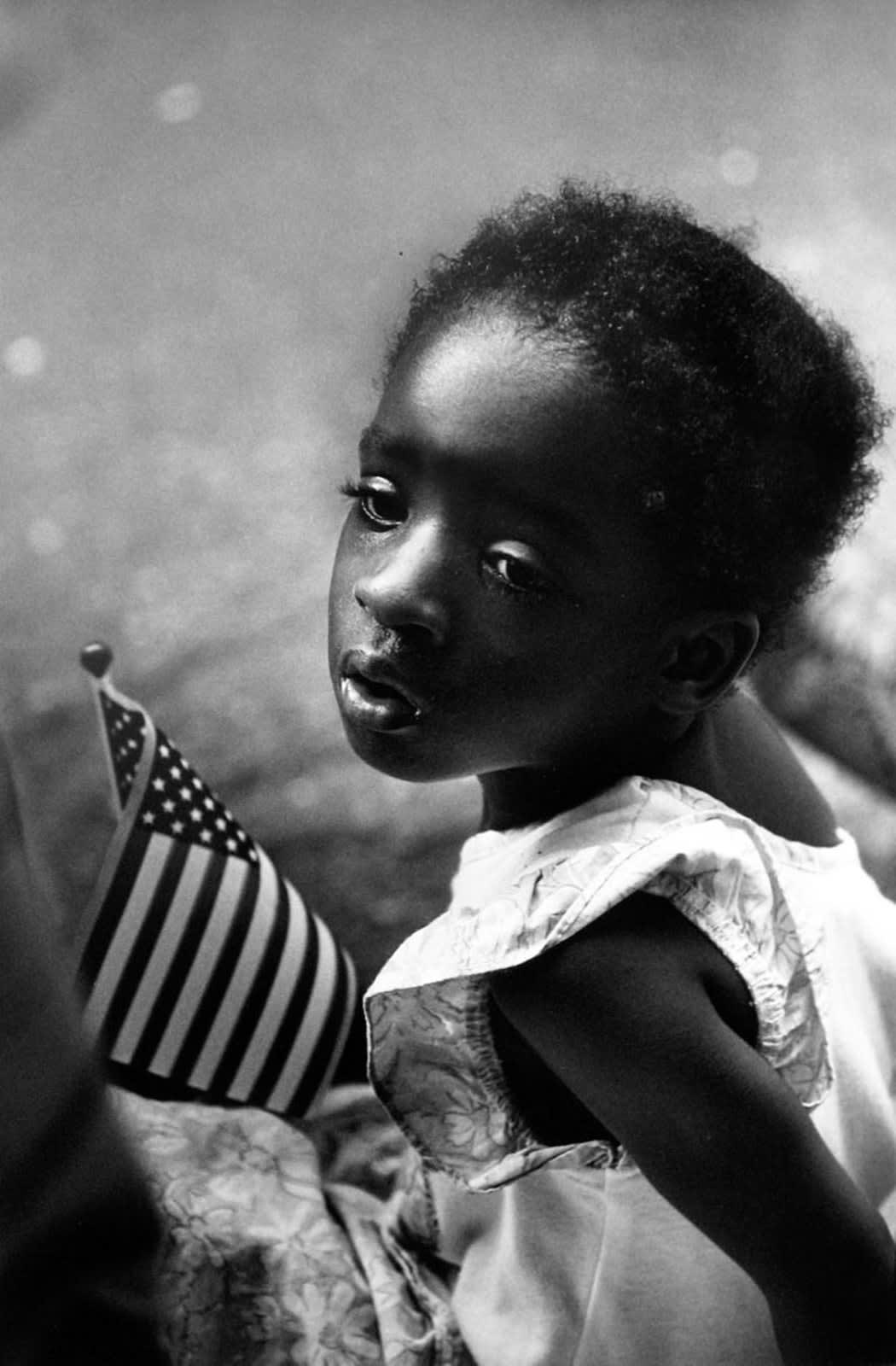
#1233 - Earlie Hudnall
~ Earlie Hudnall (Jr.)"I chose the camera as a tool to document different aspects of life: who we are, what we do, how we live, what our communities look like."
~ Earlie Hudnall (Jr.)
-
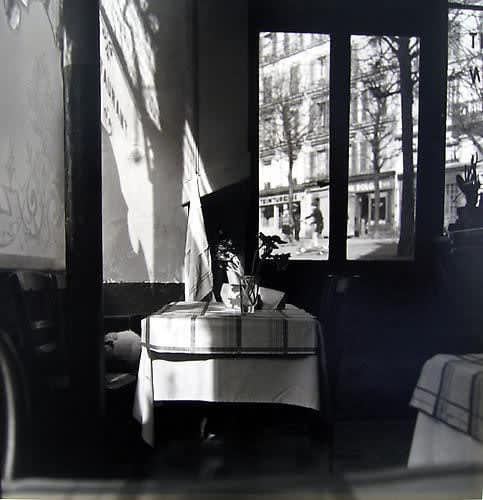
#1232 - Louis Stettner
La Pause, Restaurant Clauzel, Paris, c. 1950“Paris was that very special place where I defined myself as a photographer”
~ Louis Stettner
(1922-2016) -
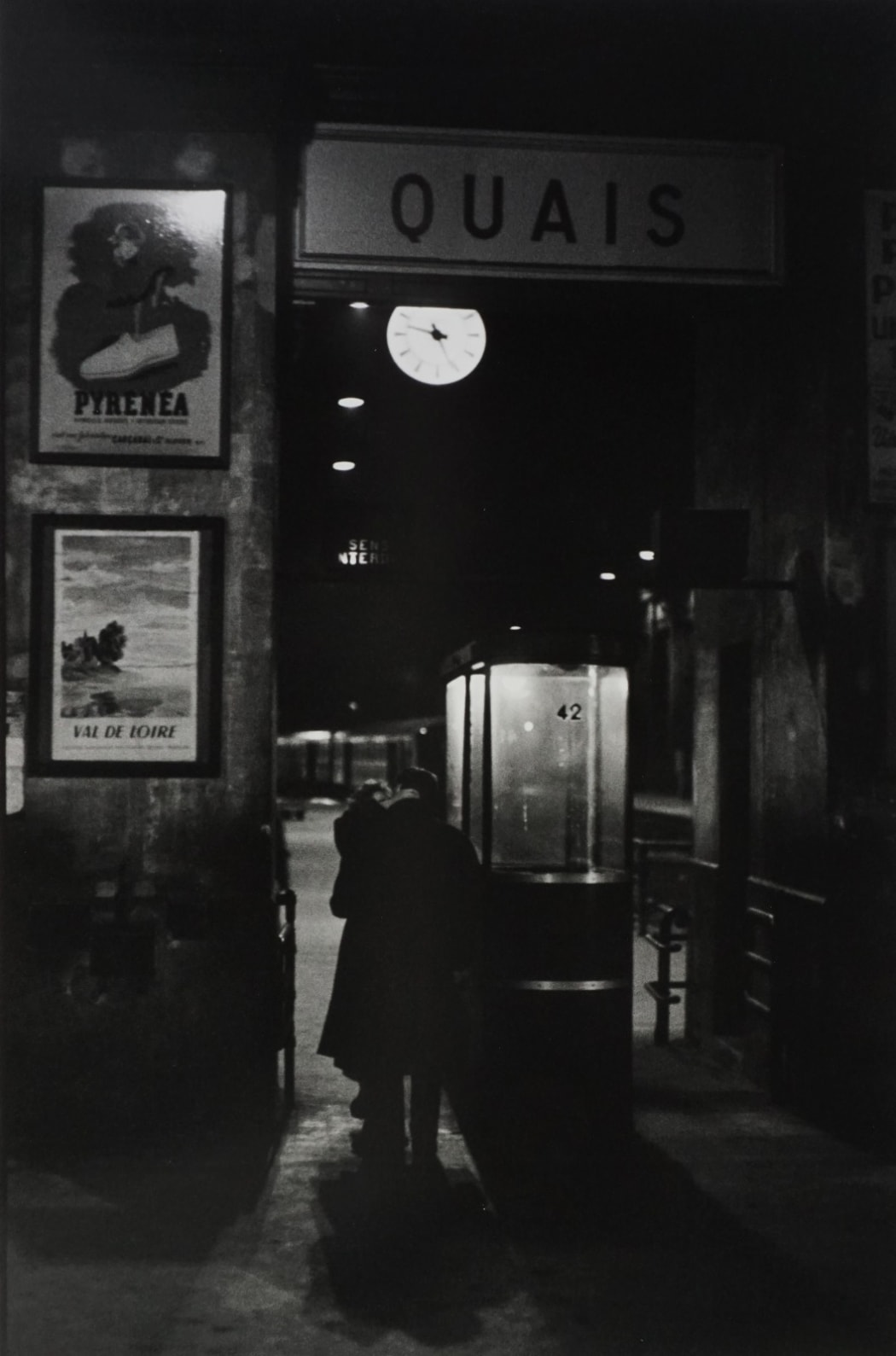
#1221 - Henri Cartier-Bresson
Paris [Quais], 1958“In photography, the smallest thing can be great subject. The little human detail can become a leitmotive”
~ Henri Cartier Bresson
(1908-2004) -
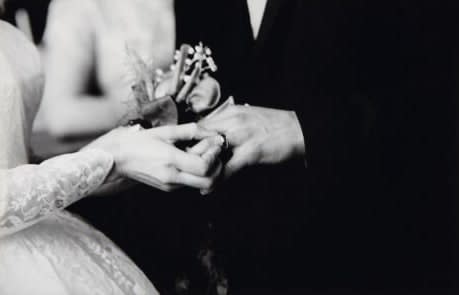
#1219 - Eve Arnold
Wedding Ceremony, Church of England, 1963“I didn’t want to be a "woman photographer”. That would limit me. I wanted to be a photographer who was a woman with all the world open to my camera”
~ Eve Arnold
1912-2012 -
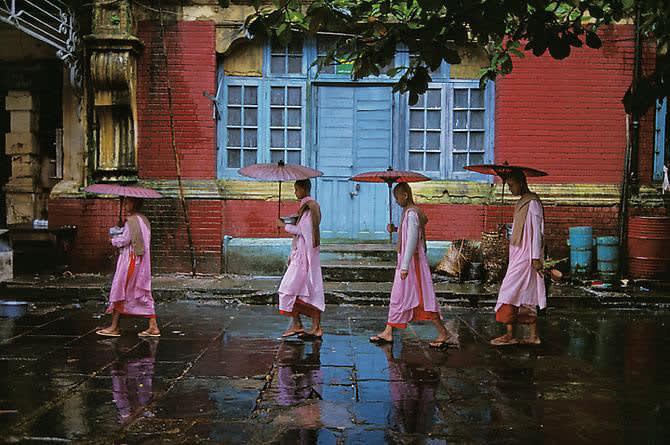
#1213 - Steve McCurry
Procession of Nuns, Burma, 1994“People always ask me “How do you relate to people. How do you get people to open up and relax?" I think it is just a question of experience. I think it’s a question of enjoying being with people.”
~ Steve McCurry
-

#1209 - Henri Cartier-Bresson
Simiane-la-Rotonde, 1970"For me the camera is a sketchbook, an instrument of intuition and spontaneity, the master of the instant which in visual terms, questions and decides simultaneously. In order to give a meaning to the world, one has to feel involved in what one frames through the viewfinder. This attitude requires concentration, discipline of mind, sensitivity and a sense of geometry. It is by economy of means that one arrives at simplicity of expression"
~ Henri Cartier-Bresson
(1908-2004)ENQUIRE ABOUT THIS WORK
-

#1203 - Marc Riboud
Painter of the Eiffel Tower, Paris, France, 1953“If you ask me what feelings the Eiffel Tower evokes for me, I’d have to say that indeed it’s a matter of sentiments. Those one feels for an old friend one is always glad to see again. A friend who was responsible for my first publication in LIFE in 1953. In the course of a long voyage full of more wear and rather less reason, laying eyes on this great lady again, you’re sure that at last you are home again. She is always there, quite erect, a bit arrogant as she looks down on us from so far above. More than ever she is courted by an increasing number of lovers who climb to conquer her. Her image marked our childhood and coming home from the country on a Sunday evening everyone of my children played the same game at the same age of around 3 or 4 of seeing who would be the first to see the familiar tower in the Paris sky.”
~ Marc Riboud. 1923-2016
ENQUIRE ABOUT THIS WORK
-

#1198 - Levitt
Children with Broken Mirror, New York, 1940“I never had a “project”. I would go out and shoot, follow my eyes-- what they noticed. I tried to capture with my camera for others to see”
~ Helen Levitt (1913-2009)
-

#1195 - Louis Stettner
"Crossing the Seine" Mother and Child, Paris, 1950“Most important was the outdoor studio that was Paris. I would take long daily walks with my camera, leaving myself open to what ever happened around me. Sometimes I am asked why I did it. There was no economic basis and the possibility of recognition was slight. I suppose I was drawn by a great need and love to get close to the world around me. Each photograph was a way of reaching out and an act of discovery”
~ Louis Stettner (1922-2006)
ENQUIRE ABOUT THIS WORK
-

#1190 - Henri Cartier-Bresson
Valencia Spain, 1933 (Printed 1970's)“I believe that, through the act of living, the discovery of oneself is made concurrently with the discovery of the world around us”
~ Henri Cartier-Bresson
(1908-2004)ENQUIRE ABOUT THIS WORK
-

#1188 - Wolfgang Suschitzky
Amsterdam, Prisengracht, 1934“Photography is a combination of the right choice of detail, the elimination of all that is inessential and the right moment that makes the picture”
~ Wolfgang Suschitzky
(1912-2016)ENQUIRE ABOUT THIS WORK
-

#1183 - Henri Cartier-Bresson
View from Notre Dame, Paris, France, 1955“Photography is nothing. It’s life that interests me"
~ Henri Cartier-Bresson
ENQUIRE ABOUT THIS WORK
-

#1178 - Willy Ronis
Marie-Anne et Vincent, Seine et Marne, 1952"A good picture knows how to communicate the emotion that created it."
~ Willy Ronis
( 1910 - 2009 )ENQUIRE ABOUT THIS WORK
-

#1177 - Charles Harbutt
The Good Kiss, New Year's Eve, Times Square, NYC, 1959-60, printed later"Photography is a unique visual language that cannot be expressed in words. As a matter of fact, if it can be expressed in words, then it probably isn’t worth photographing."
~ Charles Harbutt
ENQUIRE ABOUT THIS WORK
-

#1173 - John Bulmer
Girl in a Red Phone Box, United Kingdom, 1966"They were getting ready for their annual Village Fete and the lady was calling a friend to get the recipe for some tarts to bake. Her little girl had been in a phone box and found out that if you pressed Button B then sometimes money came out (Do you remember the old UK phone boxes?). The Mother therefore told the child that she had to face outwards and keep her hands off the buttons. I heard this story more than 50 years later when I showed the pictures in Pembridge Village Hall and I met the former child. This picture was on the cover of the Sunday Times issue”
~ John Bulmer
ENQUIRE ABOUT THIS WORK
-

#1168 - William Claxton
Times Square, NYC, 1960, printed 1999"All I ask you to do is to listen with your eyes. The international language of jazz and photography need no special education or sophistication to be enjoyed."
~ William Claxton
ENQUIRE ABOUT THIS WORK
-

#1166 - Elliott Erwitt
Ranch Boy with Father, 1954“There’s a time for photographs that say “hello”. And there’s a time to listen”
~ Elliott Erwitt
(1928-2023)ENQUIRE ABOUT THIS WORK
-

#1163 - Bruce Davidson
Little Girl in Cemetery, Wales 1965“If I take a picture I have to account for it. I have opened something to someone’s reality”
~ Bruce Davidson
ENQUIRE ABOUT THIS WORK
-

#1160 - John Bulmer
Potteries, United Kingdom , 1961“I arrived at this location from London and had only a couple of days due to the low budget. One thing I tried to do when I arrived somewhere was to get a local map and drive to a hill or vantage point to get a sense of the place. When I got to the top I saw the view over the old pottery kilns and the man with a dog. As a newspaper photographer that I then was I always had my long lens on a camera, loaded and ready, so I was able to grab it and get this shot before he walked off"
~ John Bulmer
ENQUIRE ABOUT THIS WORK
-

#1159 - John Bulmer
“Roller Girls” 1964“I was driving around Yorkshire and stopped by the bridge. I pretended to be photographing the buildings and switched at the last minute to catch the girls. I met one of the ladies in the picture fifty years later when the BBC did a little film about an exhibition I had in Wakefield. She rang The BBC and said “I’m the girl in the picture”. We were both invited to the studio to meet on air”
~ John Bulmer
ENQUIRE ABOUT THIS WORK
-

#1158 - Josef Koudelka
Warsaw Pact, Tanks Invade Prague, 1968“To be born in a country which is not free means that you appreciate freedom. You don’t think of it as something automatic, and you don’t want anyone to take it from you”
~ Josef Koudelka
ENQUIRE ABOUT THIS WORK
-

#1151 - Willy Ronis
La Nuit au Chalet, 1935"I never, ever, went out without my camera, even to buy bread."
~ Willy Ronis
(1910 - 2009)ENQUIRE ABOUT THIS WORK
-

#1150 - Ted Russell
Bob Dylan and James Baldwin talking at the Emergency Civil Liberties Committee's Bill of Rights Dinner, NYC, 1963“Not everything that is faced can be changed, but nothing can be changed until it is faced.”
~ James Baldwin
ENQUIRE ABOUT THIS WORK
-

#1140 - Sebastião Salgado
Mentawai, Indonesia, 2008“What I want is the world to remember the problems and the people I photograph. What I want is to create a discussion about what is happening around the world and to provoke some debate with these pictures. Nothing more than this. I don’t want people to look at them and appreciate the light and the palate of tones. I want them to look inside and see what the pictures represent, and the kind of people I photograph.”
~ Sebastião Salgado
ENQUIRE ABOUT THIS WORK
-

#1134 - Steve McCurry
Floating Offerings, Varanasi, India, 1996“If you wait, people will forget your camera and the soul will drift up into view.”
~ Steve McCurry
ENQUIRE ABOUT THIS WORK
-
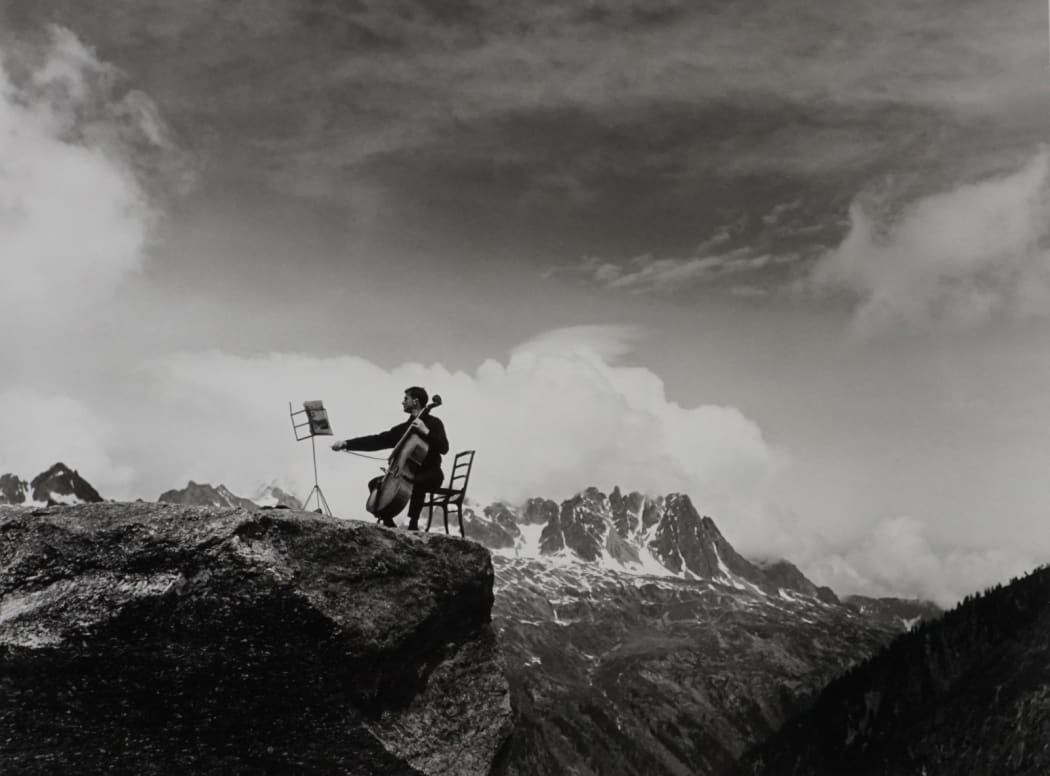
#1087 - Robert Doisneau
Musique de chambre, 1957“When our paths crossed I found the man who taught me happiness”
~ Robert Doisneau
-
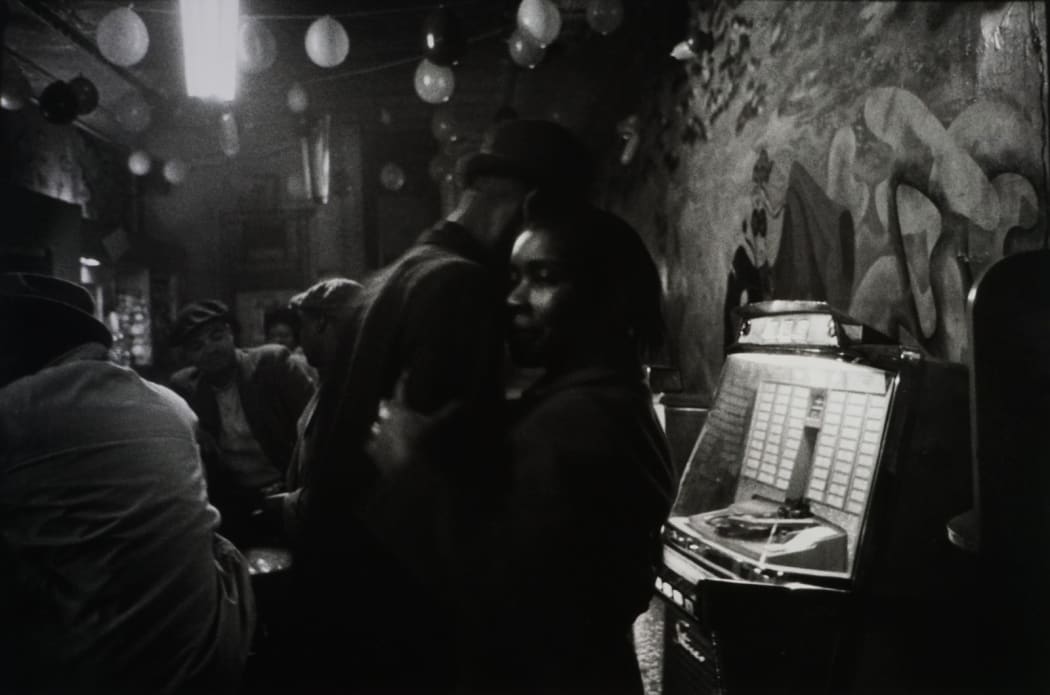
#1082 - Bruce Davidson
Untitled (couple dancing by jukebox), Chicago, 1962“I’ve had the privilege of being an outsider allowed on the inside searching for beauty, meaning and myself”
~ Bruce Davidson
-

#1074 - Bruce Davidson
Untitled, Washington DC, 1963“W. Eugene Smith’s photo essays taught me that a photograph could not only communicate emotion, but could also save the human condition”
~ Bruce Davidson
-
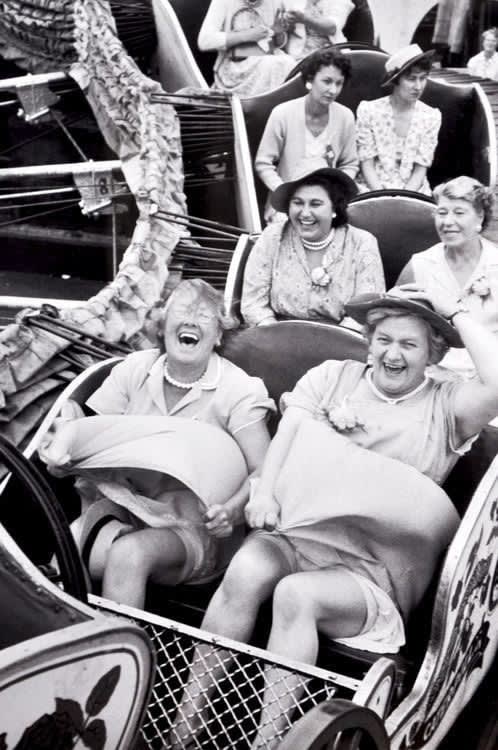
#914 - Grace Robertson
On the Caterpillar, Women's Pub Outing, Clapham, England, 1956“There is no limit to what we, as women, can accomplish.”
~ Michelle Obama
-
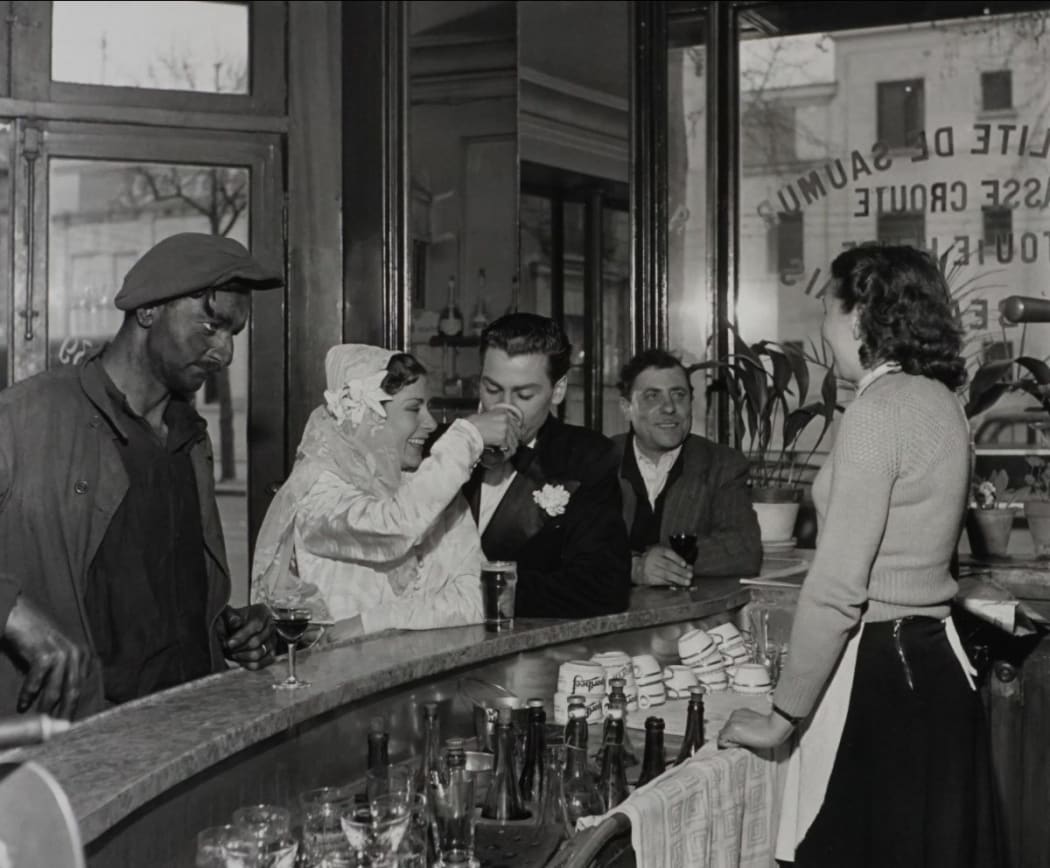
#873 - Robert Doisneau
Café noir et blanc, 1948“There is a kind of pathos about the bride drinking at the bar. Humor is a feeling of shame for overt emotion. When the scene is too tender - or too cruel- you take refuge in humor to avoid that sense of embarrassment"
~ Robert Doisneau
1912-1994 -
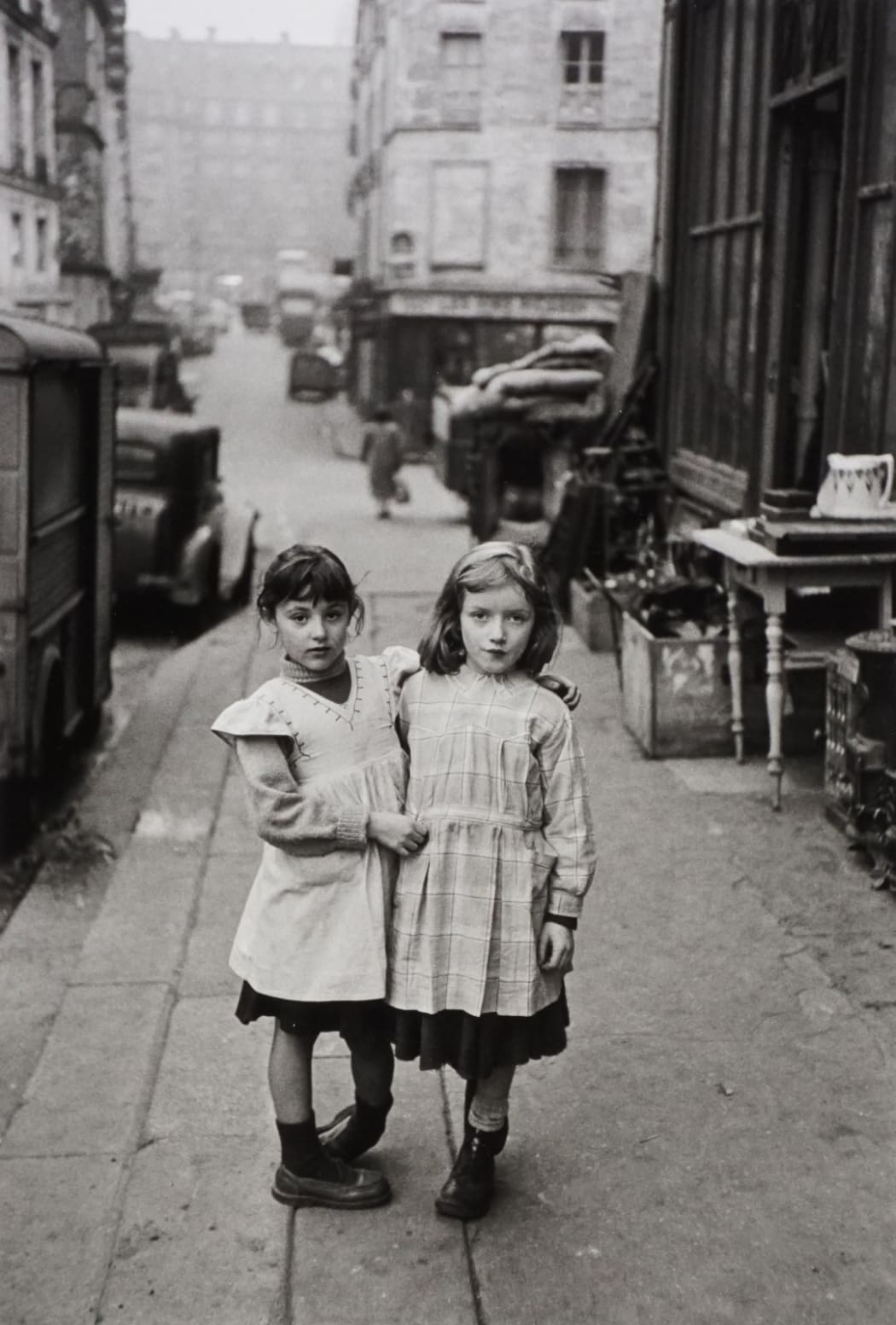
#868 - Edouard Boubat
Deux Fillettes à Maubert, Paris, 1952“You cannot live when you are untouchable. Life is vulnerability”
~ Edouard Boubat
(1923 - 1999) -
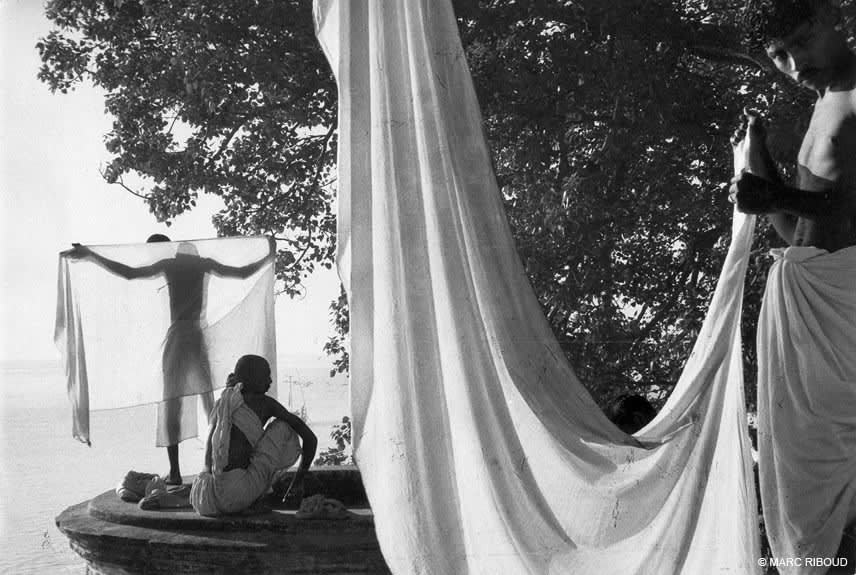
#856 - Marc Riboud
Varanasi, India, 1956“For me photography is a passion, closer to an obsession. It is not an intellectual process. It is a visual one. While shooting, if we think too much we miss the birdie. A good photograph is a surprise. How could we plan a surprise? We just have to be ready.”
~ Marc Riboud
(1923-2016) -
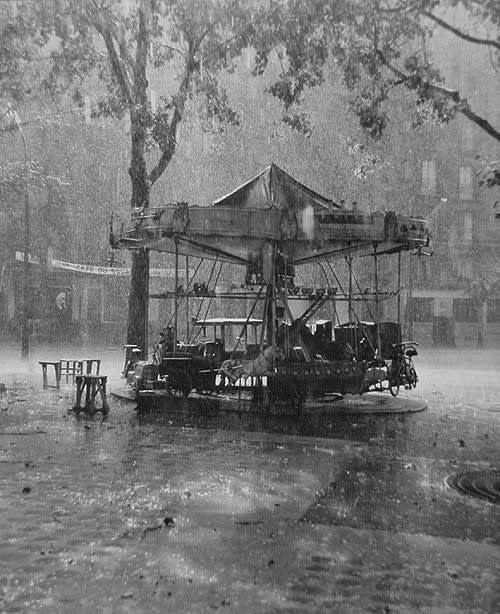
#851 - Robert Doisneau
Le Manege De Mr. Barre, 1955“I hate ugliness, it makes me physically ill. But melancholy and compassion, these may be minor values but they’re the ones that move me most of all.”
~Robert Doisneau
(1912-1994)
-
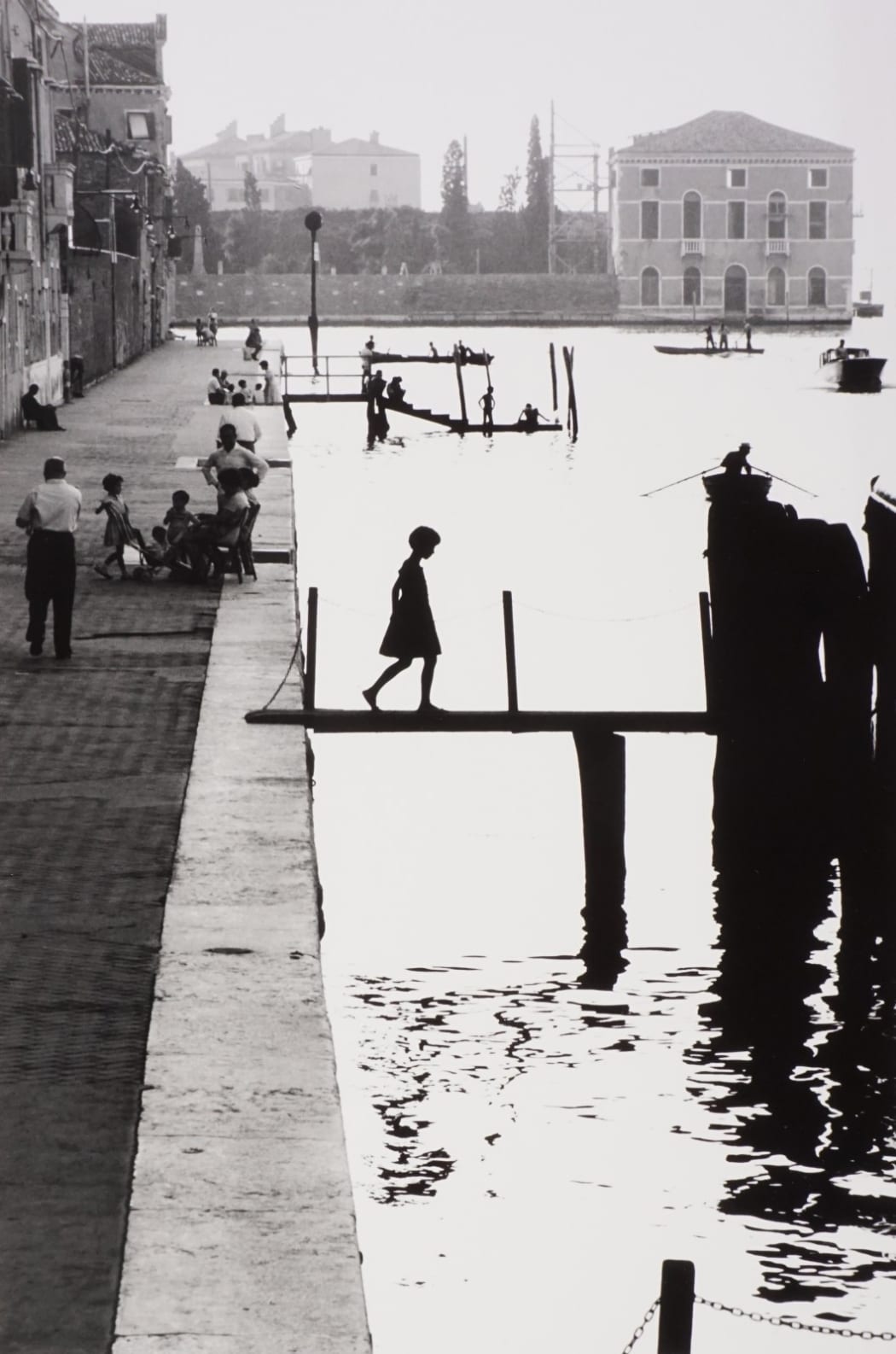
#848 - Willy Ronis
Fondamente Nuove, Venice, 1959“The sun, which was already a little low created sharp silhouettes against the back light. I switched out the 28mm for the exact opposite, the 135 mm which would best form the image that I was hoping for and which I could already see in my head. Just as I hoped a little girl stepped on to the bridge. A single click”
~ Willy Ronis(1910-2009) -
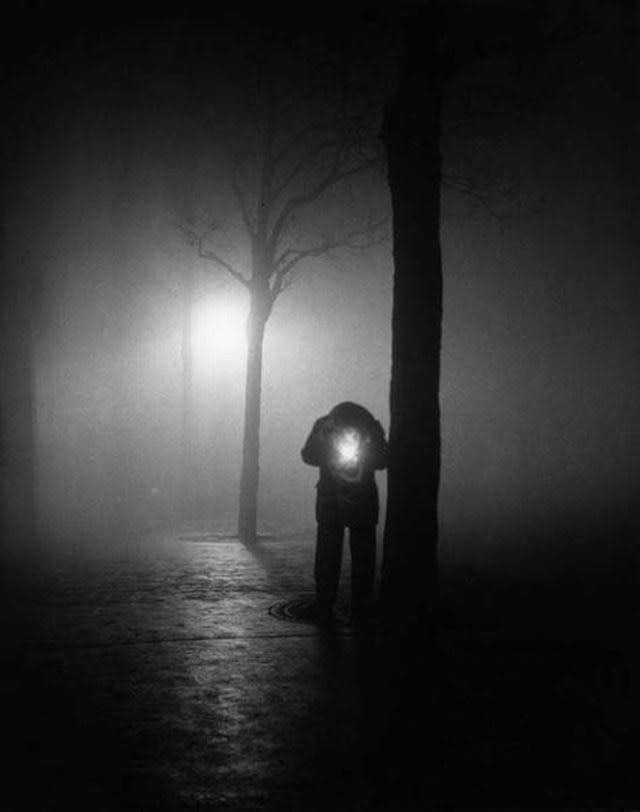
#817 - Sabine Weiss
Paris, 1950, printed later“Light, gesture, gaze, movement, silence, tension, rest, rigor, relaxation. I would like to incorporate everything in this instant, to express the essence of humanity with the minimum of means”
~ Sabine Weiss